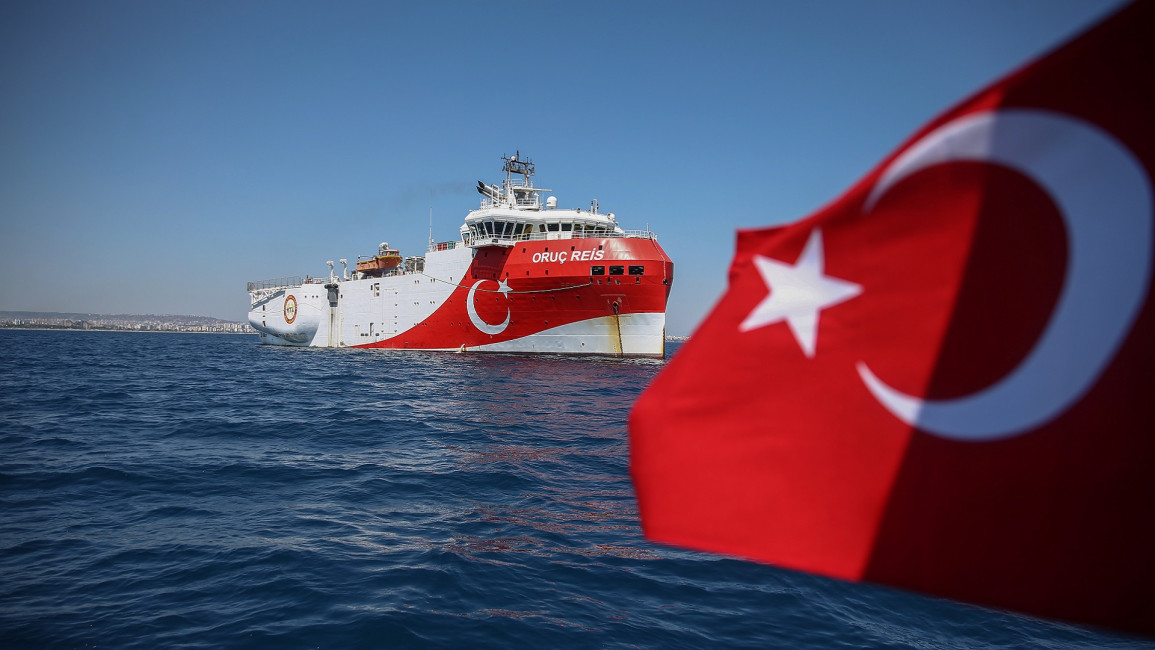Escalating tensions in eastern Mediterranean
A crisis is brewing in the eastern Mediterranean, where Turkey and Greece are using warships to press their rights to disputed waters and their rich energy reserves.
After Turkey vowed on Thursday to continue its gas hunt there, here is a snapshot of developments.
Turkey, Libya accord
Tensions set in when Ankara signs a controversial agreement in November 2019 with Libya's UN-recognised government, claiming extensive areas of the Mediterranean for Turkey.
The area has long been a source of acrimony between Greece and Turkey, and Ankara's appetite has been whetted by discoveries of large gas reserves.
In January 2020 Egypt, Cyprus, Greece and France condemn the deal as well as a security agreement also signed last year by Ankara and the Tripoli-based government, as a violation of sovereignty.
They also condemn Ankara's drilling in the waters of Cyprus, in defiance of warnings from the EU and US. Turkish troops occupy the northern third of the divided island, whose southern part is an EU member.
'Show of force'
On June 10, 2020 Ankara protests an inspection by the EU's naval mission of a cargo ship suspected of breaching the UN's embargo on deliveries of arms to Libya.
Under the 2019 security accord with Libya, Ankara boosted its armed support for the government, which is fighting strongman Khalifa Haftar's forces for control of the north African country.
Twitter Post
|
On June 11 Turkish warships and fighter jets carry out large-scale manoeuvres in the eastern Mediterranean.
Turkish state media describe them as a "show of force".
Ankara also announces plans for energy exploration near the Greek island of Kastellorizo, which rests just two kilometres (1.2 miles) off the Turkish coast.
Greece, Egypt accord
The mood sours further when Greece and Egypt sign an agreement on August 6 to set up an Exclusive Economic Zone (EEZ) in the eastern Mediterranean.
Turkey is incensed by the deal, branding it "null and void".
President Recep Tayyip Erdogan announces that Turkey was resuming its suspended search for energy in disputed waters.
Oruc Reis
Turkey's Oruc Reis research vessel and five warships enter waters claimed by Greece near Kastellorizo.
France sends in its own military assets in support of the Greek warships monitoring Turkey's work.
Collision
On August 12, a Turkish frigate collides with a Greek one in the eastern Mediterranean in hotly disputed circumstances.
Commenting on the incident for the first time, Erdogan vows not to yield to "pirates".
On August 21, he says that Ankara will deploy at the end of the year the Kanuni drilling ship, which is undergoing maintenance.
Mediation
On August 25, German Foreign Minister Heiko Mass shuttles between Athens and Ankara in a bid to put direct talks between the two rivals back on track.
The next day, Erdogan warns Turkey will make "no concessions" in the area.
Greece begins three days of war games with France, Italy and Cyprus, while Turkey conducts drills with the US navy nearby.
Ankara prolongs gas exploration
On August 27, Turkey extends its gas exploration mission, prolonging the stay of the Oruc Reis to September 1 and schedules navy shooting drills at the edge of its territorial waters to the northeast of Cyprus.
Germany's Mass, speaking at a meeting of EU foreign ministers in Berlin, says the war games must stop to allow for talks.
Greece calls the extension "unauthorised and illegal".
The Greek parliament also ratifies with EEZ accord struck with Egypt on August 6.
Follow us on Facebook, Twitter and Instagram to stay connected



